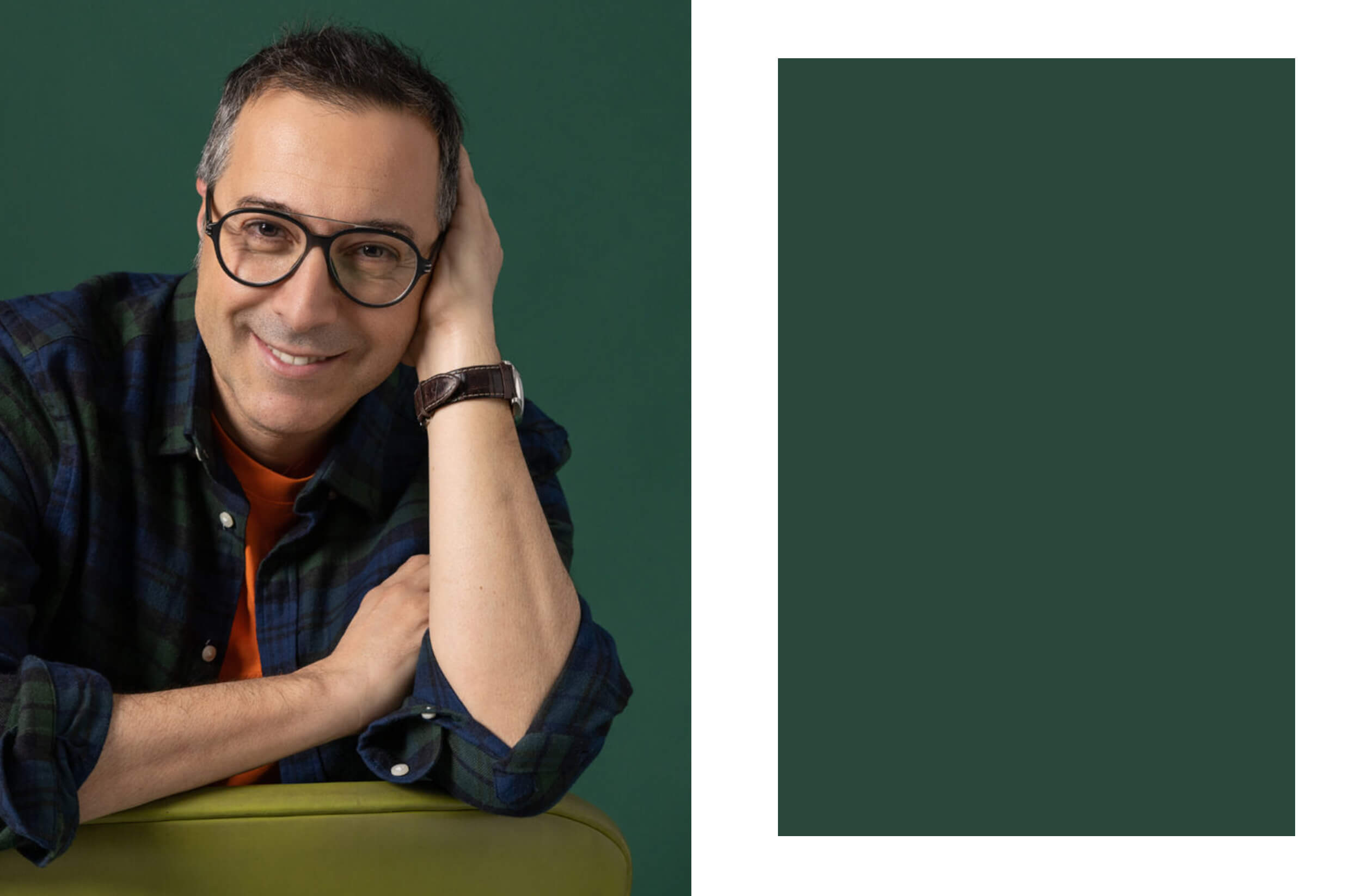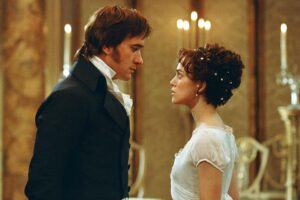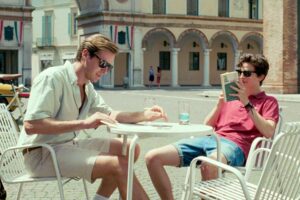He loves sad books; they are his favorites.
He likes murder mysteries, the great classics, but he’s never wanted to write one.
Or so he thought. Luca Bianchini, a master in observing human beings and the comic mood, amazed everyone with his new novel “Le mogli hanno sempre ragione,“ published by Mondadori, a murder mystery with a comic touch, that I binge-read in one-afternoon time.
A new experiment for him, but for us, a confirmation of his brilliant genius, which we hope is just the first of a long list.
Between reading tips and bubbles from outside of our reality, here’s our chat with Luca.
I read that, when you start writing a book, it’s because you feel like you have a crush on something, a thought, an idea. What happened with “Le mogli hanno sempre ragione”?
In this case, the crush was more on the desire to face a challenge, of challenging myself, also as a seductor. It’s an objective, a prey that seems unreachable, but you say to yourself: no, I can do it. I would have never thought I could dare to write a murder mystery, but I was in a situation of constriction, where I couldn’t travel, investigate, or document myself, I didn’t have any particular cool ideas comedy-wise, and if I’m not convinced, I don’t begin. I’m not one of those who write only because they have a contract, I’m an authentic author in this.
As a genre, the murder mystery was something completely new, like when you’ve always gone on holiday at the beach, and one day they suggest you do something on a glacier: it’s not your thing, but then maybe you go to Iceland and who knows…
I had so much fun and I didn’t think it would have gone so well. I thought it would have been much easier and also less nice, but it was very nice instead; it’s different from the novels, it’s like there’s an enigmatic component in the solution of murder mysteries, while in a novel, even though you don’t have an amazing scenario, you know that with words, you can tell a story in a very good way, you can make up with writing, while if you get the solution of a murder mystery wrong, you’ve got the whole novel wrong!
If, in the end, you don’t convince the reader, you fail, so writing murder mysteries is also very risky. But if you get it right, you come out very satisfied with it.
Would you like to write more murder mysteries or would you prefer to experiment with other genres?
I’d love to write another detective story with the same pair of investigators, but in a different setting, maybe in a nearby town, so not with the same relatives. As a litmus test, to see if I’m capable of doing it. Then, if everything goes well, I could write one from time to time. Anyways, I still haven’t planned it.
The character of Agata: I guess you called her like that in honor of Agatha Christie; then, there’s Clemente, a character I’ve fallen in love with, with all his layers and the love for karaoke. Do you also share his passion for karaoke?
I don’t really have a passion for karaoke, it’s more like a fascination because I like things that are a bit kitsch. Karaoke is a weird thing because everyone thinks it sucks, but when you actually try it, you don’t want to drop the mic and can’t wait for your turn. So, karaoke is a bit like a metaphor for life.
What’s Clemente’s favorite song to sing, according to you?
Well, I think he’s a sort of failed “sorcino,” that is a fan of Renato Zero, a bit like the beginning of the book says, “The son is dying already,” from a song by Renato.
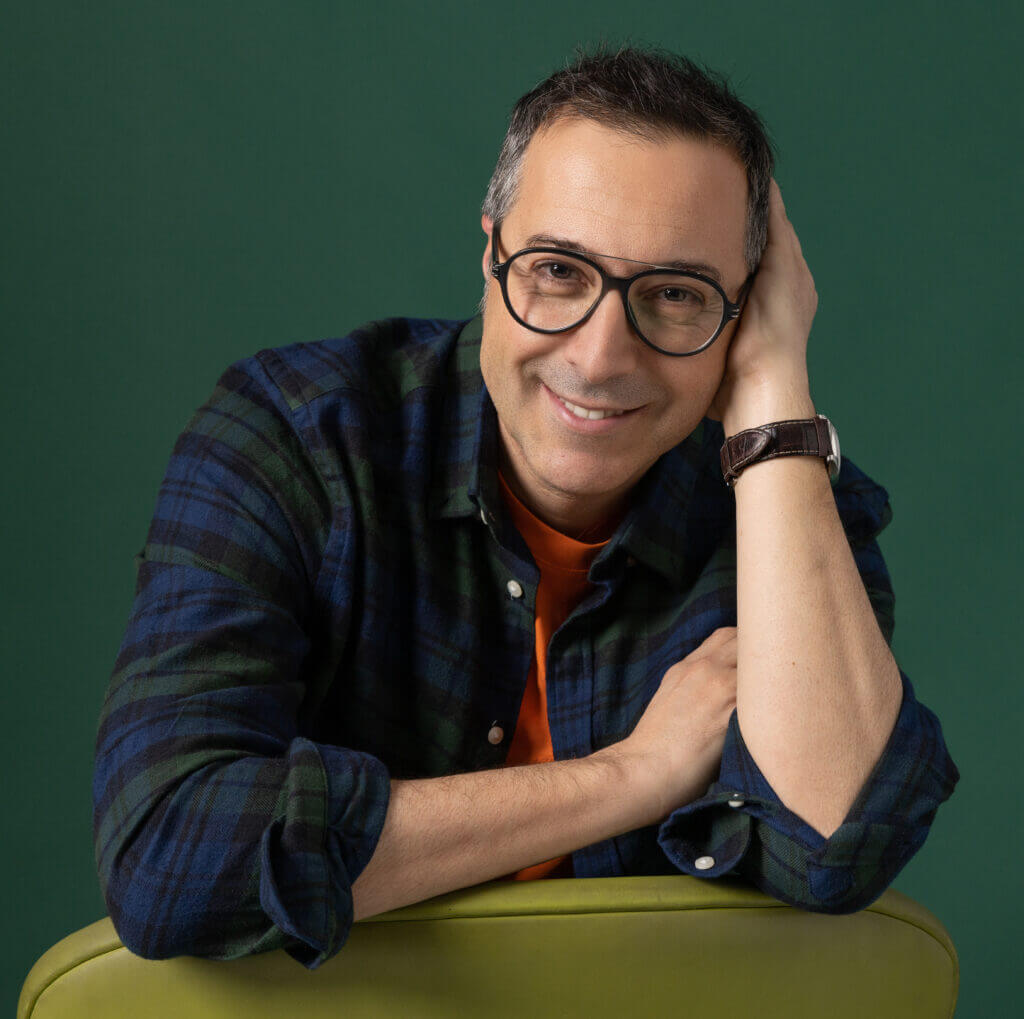
In the initial part of the book, you say that to understand the owner of a house, you’d only need to explore their kitchen. This made me think a lot, I think you’re so right, as far as us Italians are concerned in particular. For us, the kitchen is a very important place, and when you look at it, you can understand the personality of its owner. What’s your kitchen like?
My kitchen, unfortunately, is untidy, but also beautiful, and luminous, it has a huge wooden table which is the one on which I write and cook, and I like to keep it the way it is, with no tablecloth. It’s a very loving, warm, kitchen full of mugs… And wine and parmesan are never missing from it.
You always need to have the basics for an aperitivo.
There’s a point where you write that everyone was born in Bari, but you weren’t, you’re from Turin! However, you feel a great love for Puglia in general, and I know it was born from a series of weddings you were invited to…
Yes, they’ve kind of adopted me in Puglia, but I didn’t really understand how and why. The truth is that there are lots of Puglias, and people there are difficult to generalize, also because many people tend to “summarize” them, but they’re very different one from another. For example, I like the people from the area of Bari because they’re all tendentially a bit megalomanic, childish, very fun, they love to enjoy life, and they’ve adopted me, so I always feel like I’m on holiday, when I go there to present books or look for stories. There, I really feel at home. I love Italy in general, but I’ve got to say that, for many reasons, I particularly like Puglia, maybe because I’m more comfortable with people there, I have lots of friends.
It’s with the help of irony that, in this book, you’ve faced topics like homosexuality, racism, and the role of social media, almost as if it were a sort of weapon. How important is it, for you, the irony?
The irony is a non-common talent. Unfortunately, we live in a country that takes itself very seriously, that has no sense of humor, so sometimes irony gets misunderstood, and mistaken for arrogance, but I don’t care at all. The irony is something that needs to be nurtured, so that people, little by little, must learn to seize it and, maybe, use it. Irony allows you to tone things down, especially defeats: self-irony, for example, is something I practice a lot and I find it very useful because it allows you to solve lots of situations. If, on the contrary, you take everything too seriously, a situation of failure becomes a real failure, while using irony helps solve the situation and prevents you from experiencing frustration. The irony, however, is something that not too many people practice and appreciate, on the contrary, it’s a weapon that ends up being annoying because it’s powerful. I’m lucky to have it and hope I can use it well.
You also talk about social media, both when you present Ninnella’s daughter, who’s the first influencer in Polignano, and when you say that opening windows is like having a “Facebook” in front of your eyes. What kind of relationship do you have with social media?
I spend quite some time on social media, so I consider them a double-edged sword. However, to me, there are more pros than cons. Anyways, among the cons (what a shame), there’s the fact that they make us create an image of ourselves that doesn’t always correspond to reality, so we’re often misunderstood. I don’t like sharing sad things, so, on social media, I always look happy, but I’m sad too, sometimes, I’ve got issues, too, even though people think I don’t only because I decide to post pictures of sunsets, glasses of wine, books, and Grana cheese. However, social media are also a means that, if used in the right way, teaches you not to give a damn, and attracts readers: you need to make smart use of them, without overdoing it, letting them upset you, influence you, performance-wise.
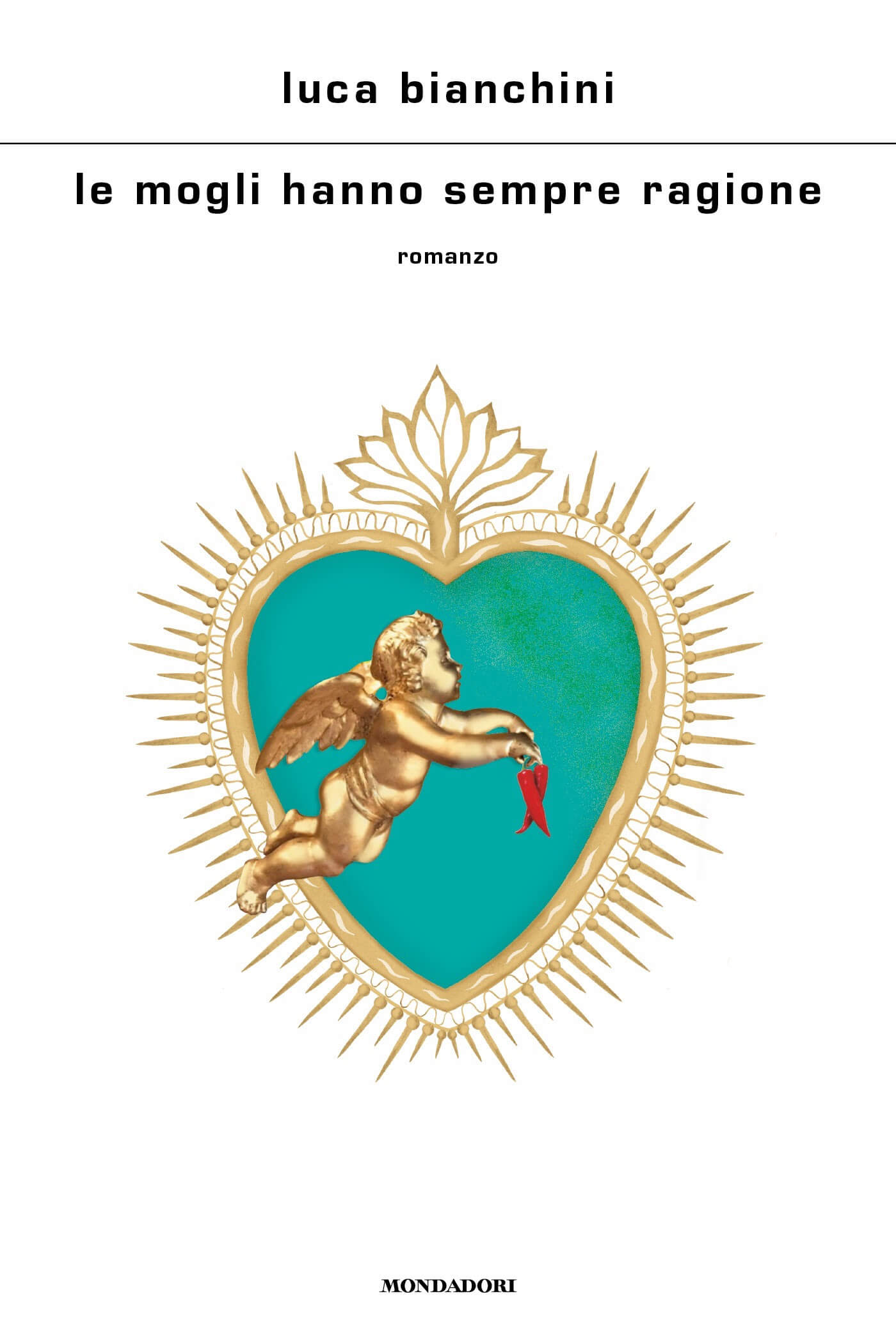
What’s your favorite murder mystery book, the one you would recommend?
“And Then There Were None,” by Agatha Christie, it’s an incredible story, when you finish it, you’re like, “No way, I would have never imagined.” It’s very frustrating, but also very nice and fun.
What’s the latest thing you’ve written?
An article about Italy for Grazia, and an episode of “Mangiafuoco,” which is a program airing on Radio1, about Charles Aznavour.
You said that for you, especially during the lockdown, but in general as well, a book is like a bubble. Do you mean both reading a book and writing it?
Yes, it is, in both cases. Murder mysteries work even more like a bubble because they become like a sort of puzzle, they take you even further away from reality compared to a novel, I think. For this reason, maybe, Italians love murder mysteries, as it’s probably a genre that is appealing also to those who don’t really like reading, who take it as a challenge, like “I want to see if I can solve the mystery.”
That’s true. In fact, I’ve had a quite long reader’s block, and started reading again with a detective story, “The Truth About the Harry Quebert Affair.” Are murder mysteries your favorite genre?
No, I don’t read murder mysteries! I read Agatha Christie and that’s it. I’ve been exploring new territory, in fact. My favorites are tragic and sad novels, the depressing ones, like Houellebecq, I would recommend reading “Platform.”
I don’t know why, but when I read a book, I always imagine what the movie based on that book would be like, what actors would play which characters, etcetera. While reading yours, I thought that the director of a hypothetical movie based on it would be Sorrentino, maybe because of the ironic way in which you speak about Southern Italy and those who move to the North…
I wish! You really love me! It would be nice. Sorrentino complimented me on one of my books called “Siamo solo amici,” one time I met him at the local market, can you believe it?
It’s always nice to receive compliments from Sorrentino.
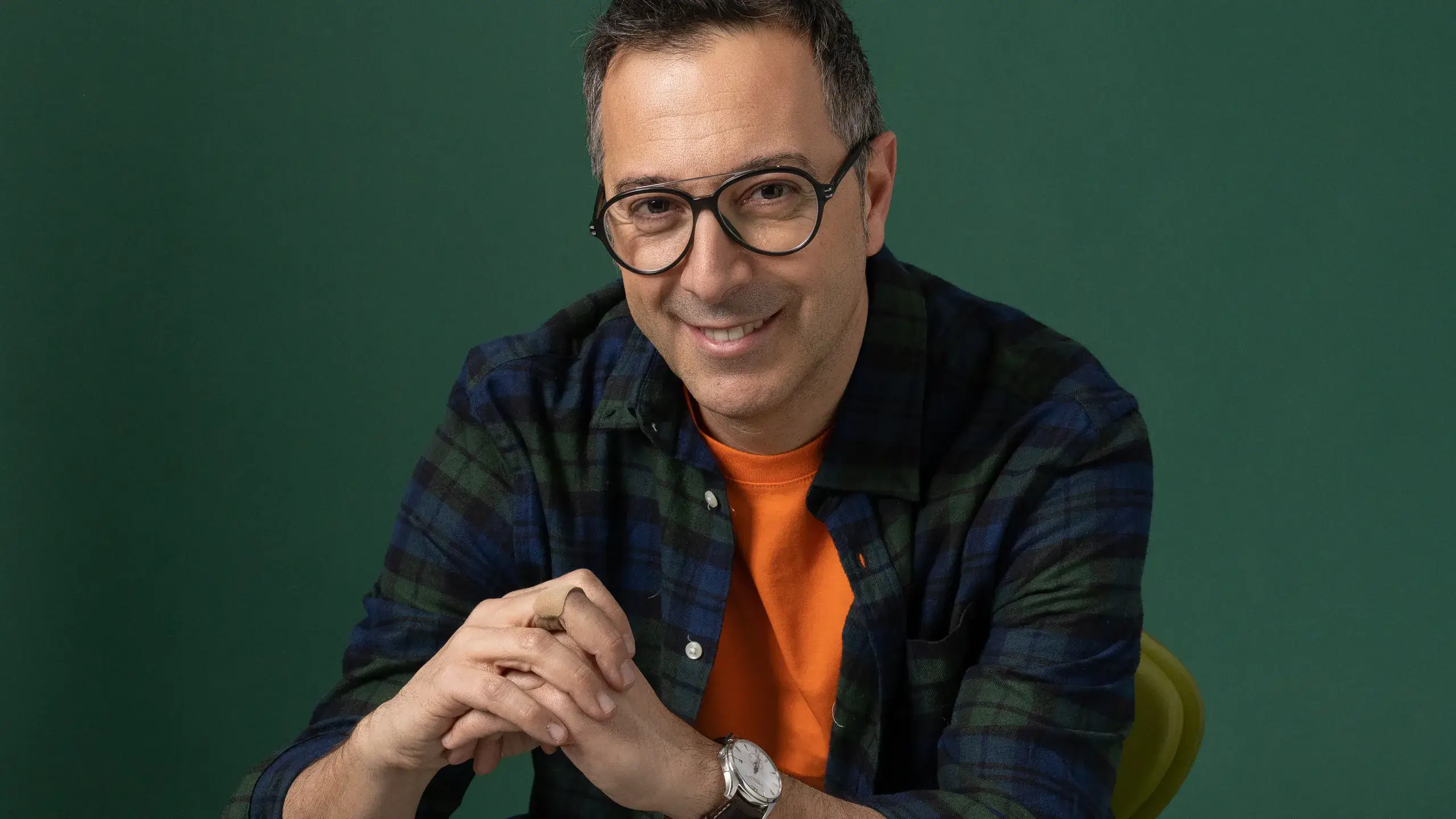
Photos by Claudio Sforza.

